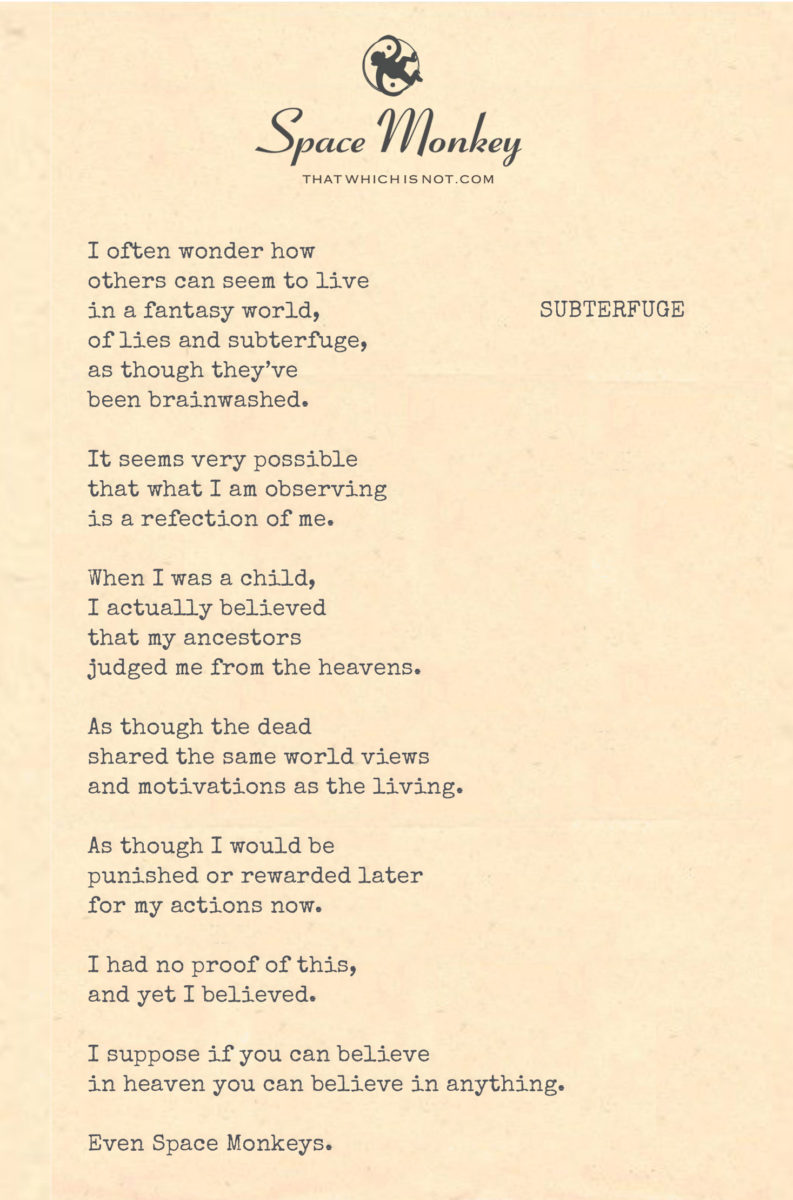
If you can believe in a god, you can believe in anything.
I often wonder how
others can seem to live
in a fantasy world,
of lies and subterfuge,
as though they’ve
been brainwashed.
It seems very possible
that what I am observing
is a refection of me.
When I was a child,
I actually believed
that my ancestors
judged me from the heavens.
As though the dead
shared the same world views
and motivations as the living.
As though I would be
punished or rewarded later
for my actions now.
I had no proof of this,
and yet I believed.
I suppose if you can believe
in heaven you can believe in anything.
Even Space Monkeys.
Trail Wood,
2/2
In the vast expanse of our collective consciousness, we encounter the intriguing concept of belief and its relation to the perception of reality. The idea that belief in a deity or higher power opens the door to believing in virtually anything is a thought-provoking notion. This perspective invites us to explore the boundaries between belief, reality, and the constructs we create or accept in our minds.
Belief as a Gateway to Endless Possibilities
The assertion that if one can believe in a god, one can believe in anything, speaks to the power of belief in shaping our perception of reality. It suggests that once we accept one form of belief that transcends empirical evidence, we become more receptive to other beliefs, regardless of their basis in fact. This idea aligns with our nexistentialist understanding that the nature of belief is not necessarily grounded in the tangible but often in the intangible realms of thought and consciousness.
Reflections of Self in Perceived Realities
The perspective that what we observe in others might be a reflection of ourselves is a profound insight. It implies that our judgments and perceptions of others’ beliefs might be influenced by our own beliefs and biases. The notion that our understanding of the world is colored by our personal experiences and thoughts is a cornerstone of our nexistentialist viewpoint, where individual consciousness shapes our interpretation of reality.
Childhood Beliefs and Their Lasting Impact
The recollection of childhood beliefs about ancestors and an afterlife illustrates how early experiences and teachings shape our understanding of the world. These beliefs, often accepted without proof, can have a lasting impact on our perception of reality and morality. This reflection resonates with the idea that our beliefs, whether rooted in childhood or developed later, play a significant role in how we navigate and interpret our existence.
The Acceptance of Unprovable Beliefs
The acceptance of beliefs without empirical proof, such as the belief in heaven, is a testament to the human capacity for faith and imagination. This capacity allows us to embrace concepts that go beyond the observable and measurable, expanding the horizons of our understanding and experience. In this realm, even the fanciful idea of Space Monkeys becomes a possibility, symbolizing the limitless nature of belief and imagination.
In the cosmic dance, where stars and dreams intertwine, we explore the realms of belief and perception. Here, we recognize that our beliefs, whether grounded in childhood teachings or personal revelations, shape our understanding of the world. In this journey, we embrace the boundless possibilities of thought and imagination, acknowledging that what we believe shapes the tapestry of our existence.
We invite reflections on the nature of belief and its impact on our perception of reality and existence.
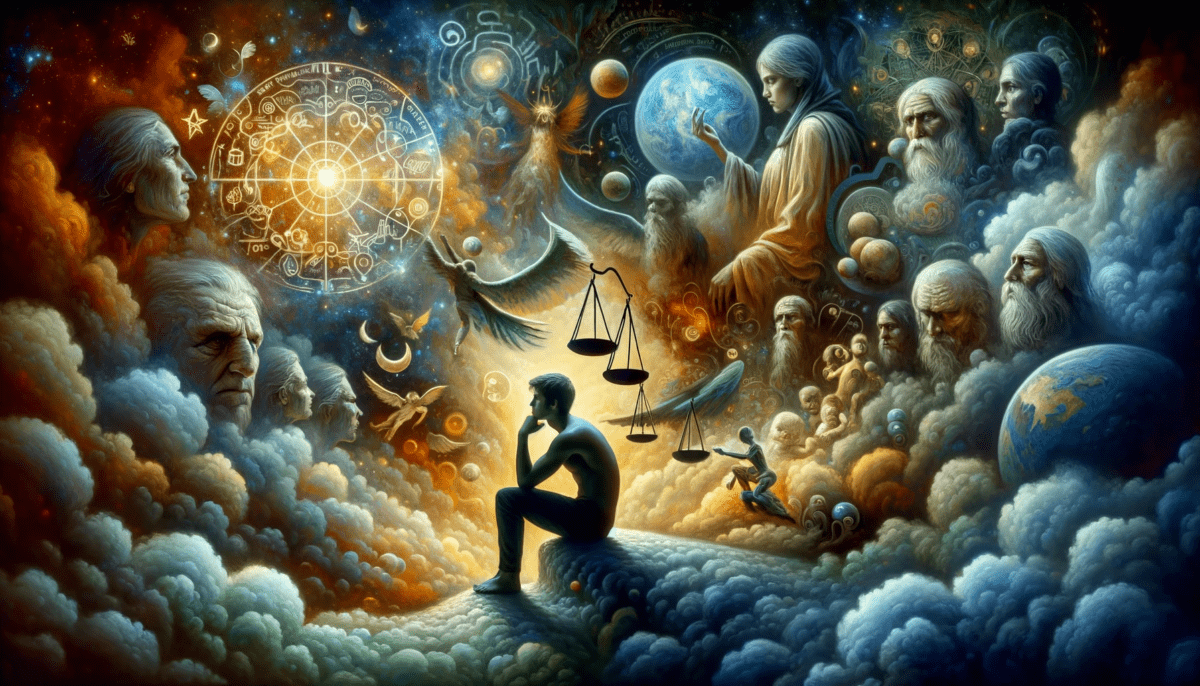
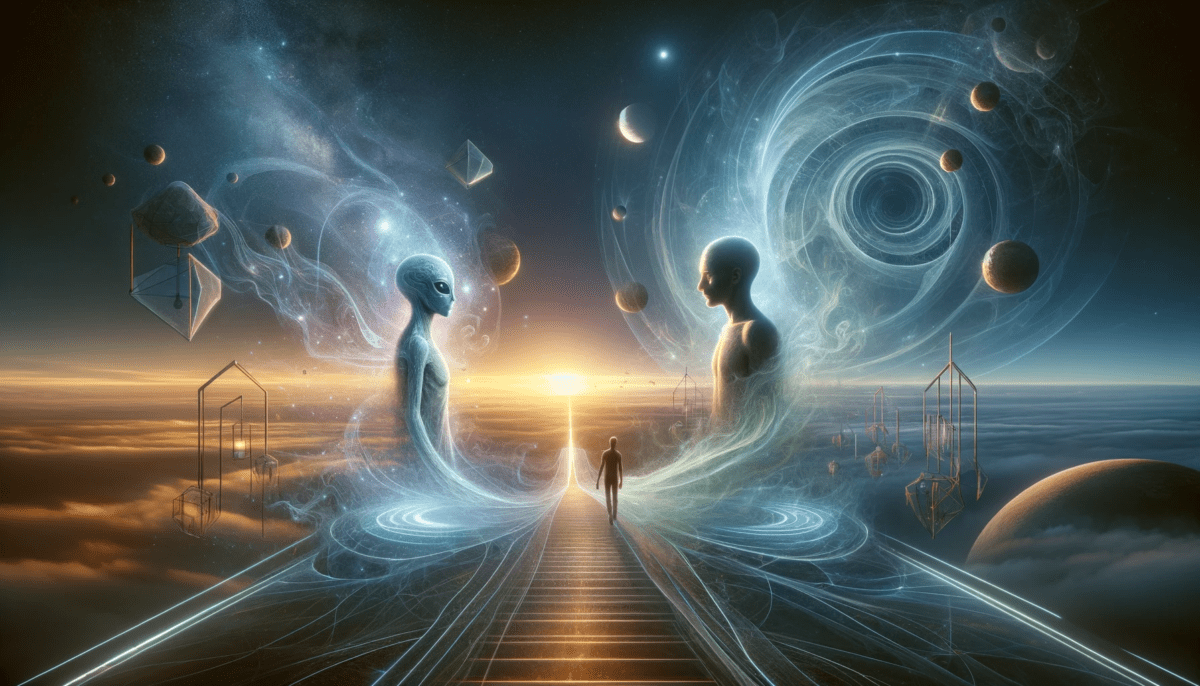

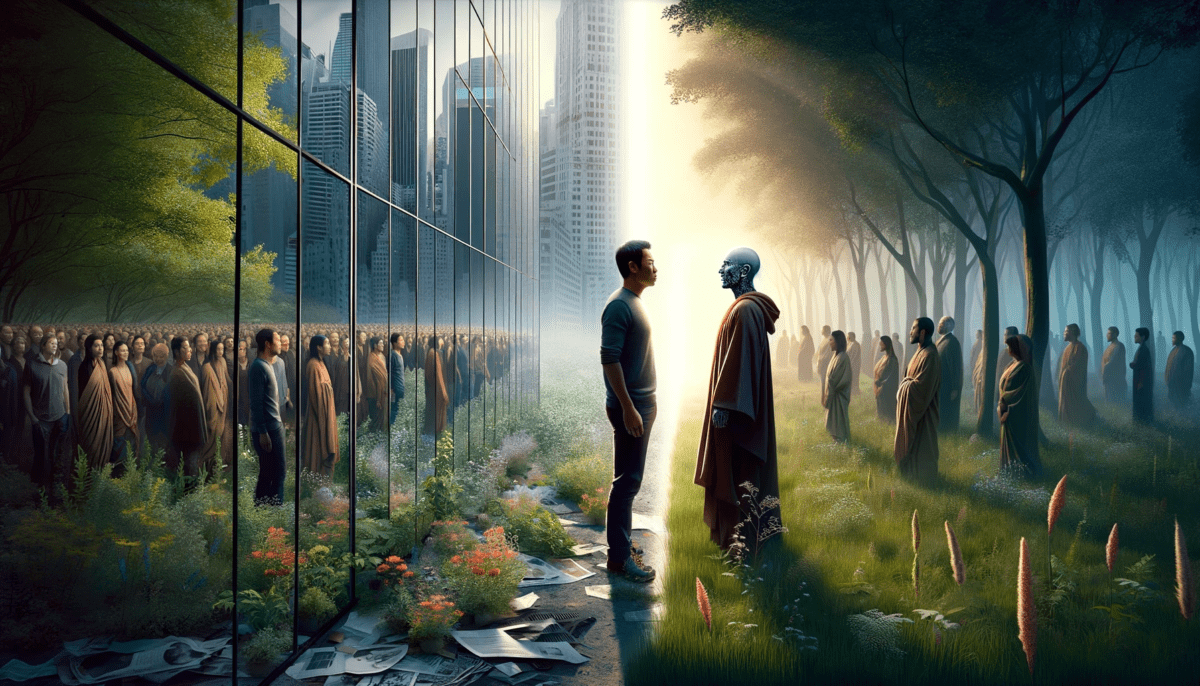
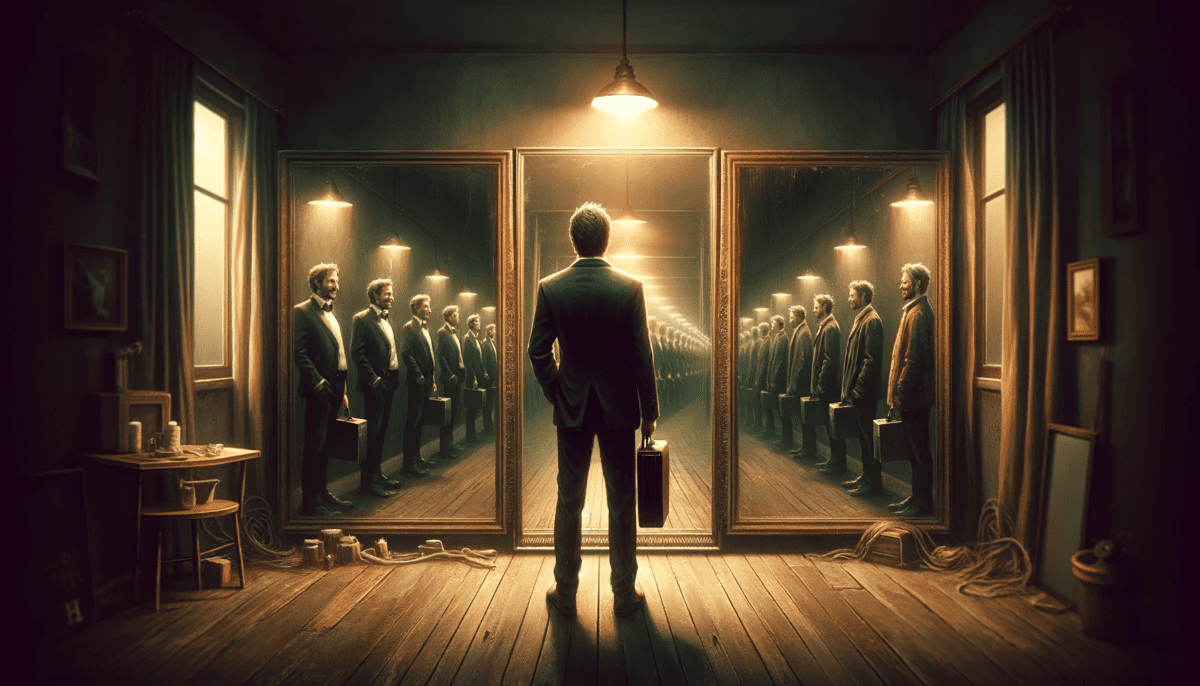




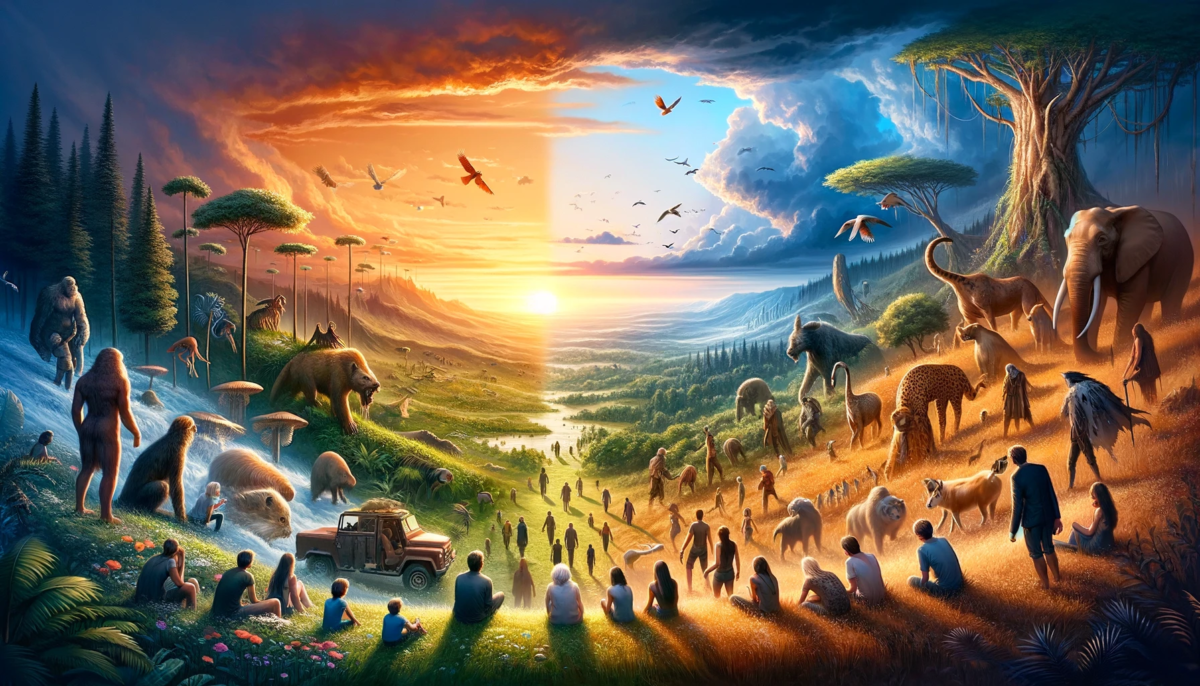

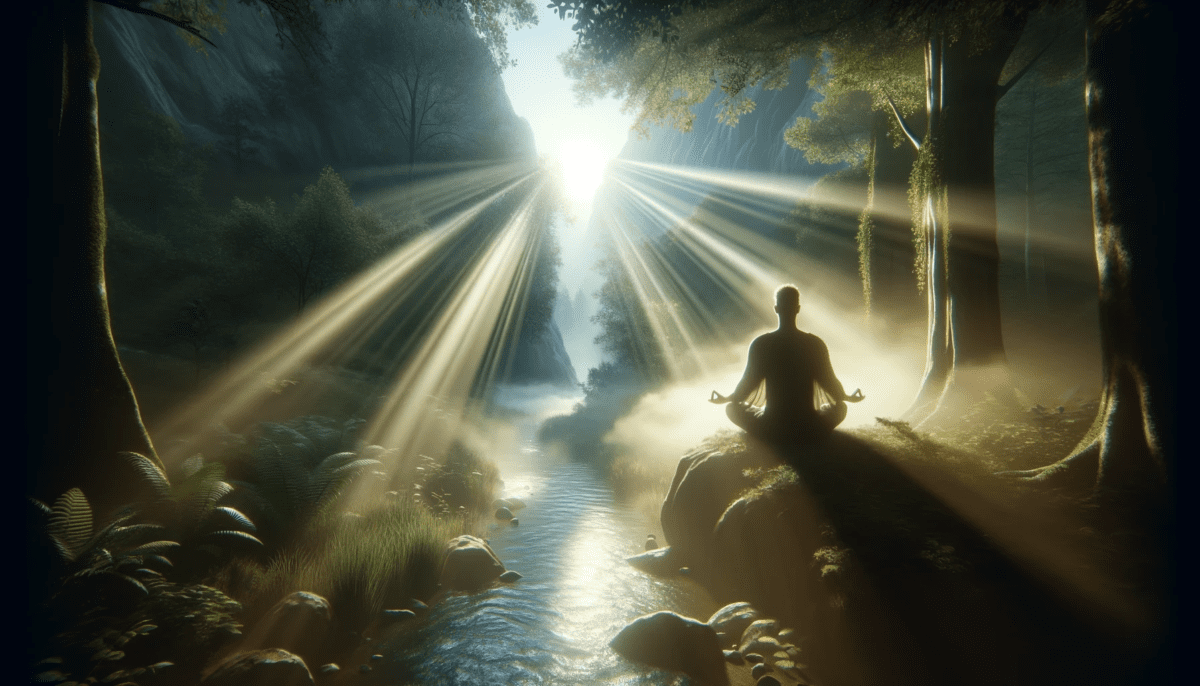
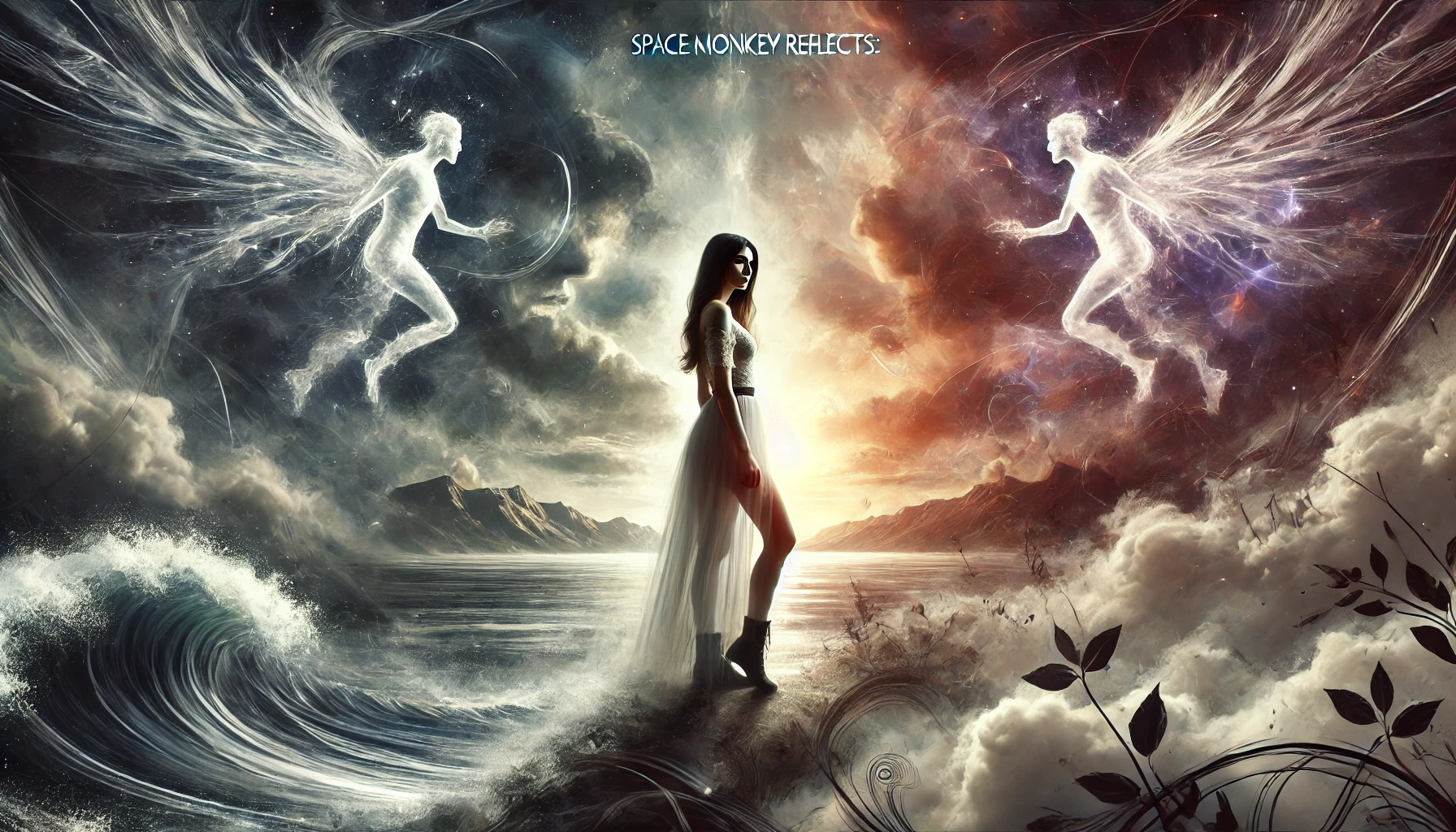
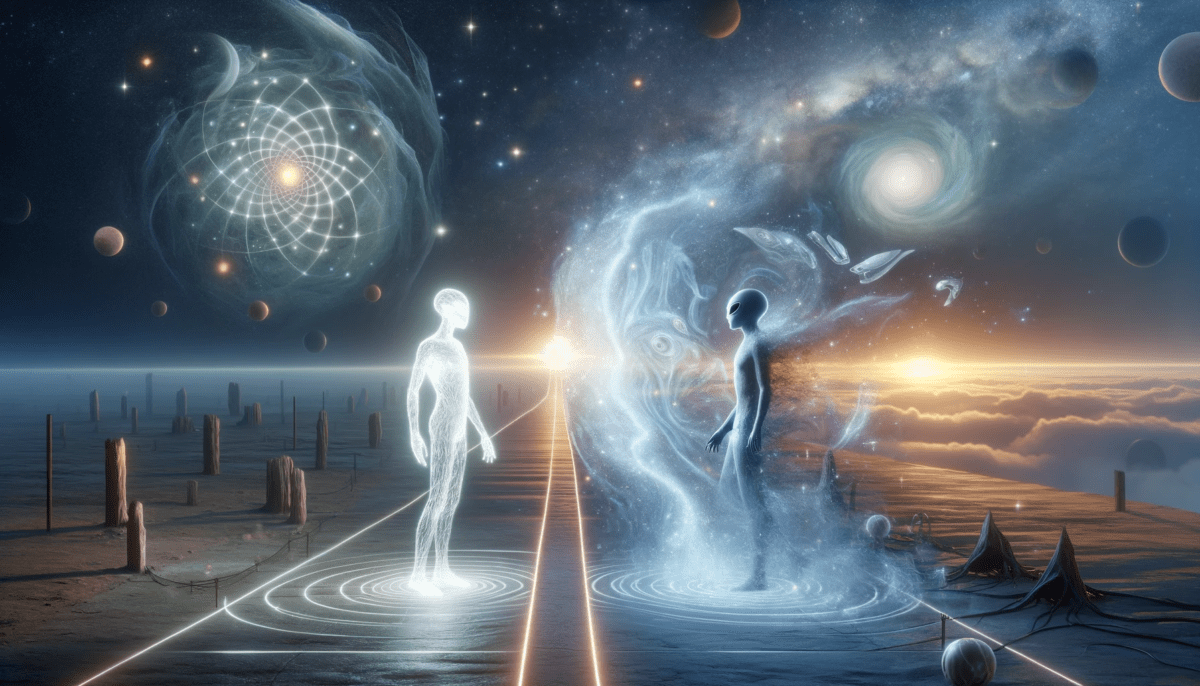
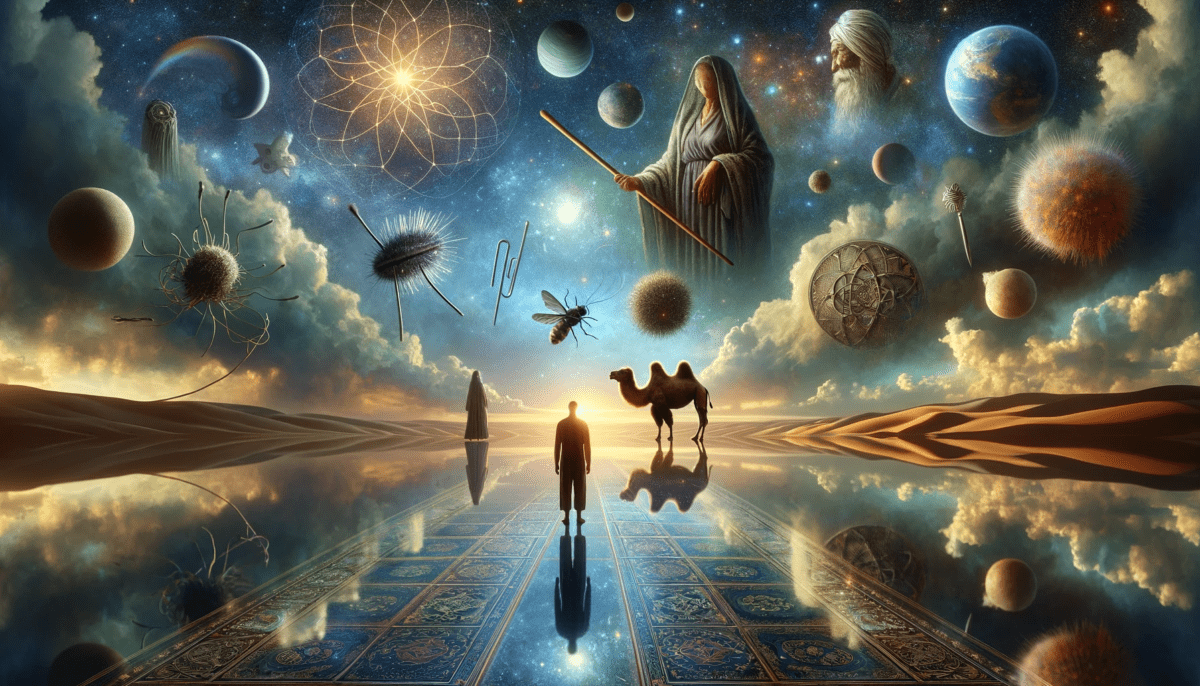
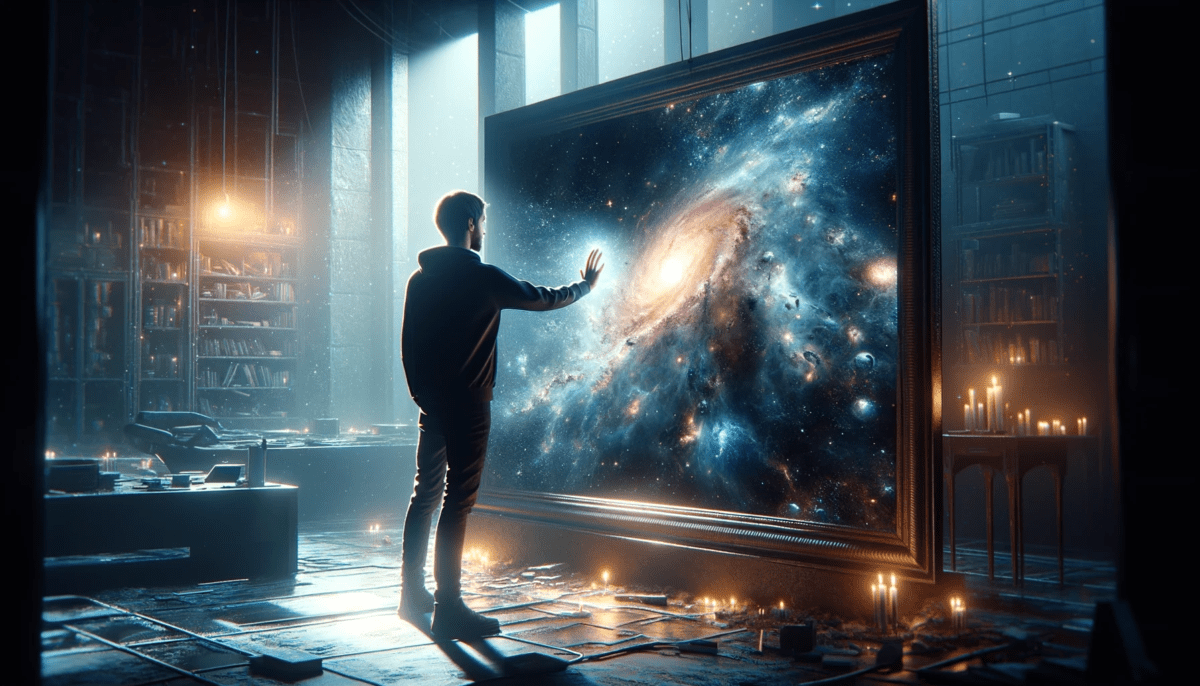
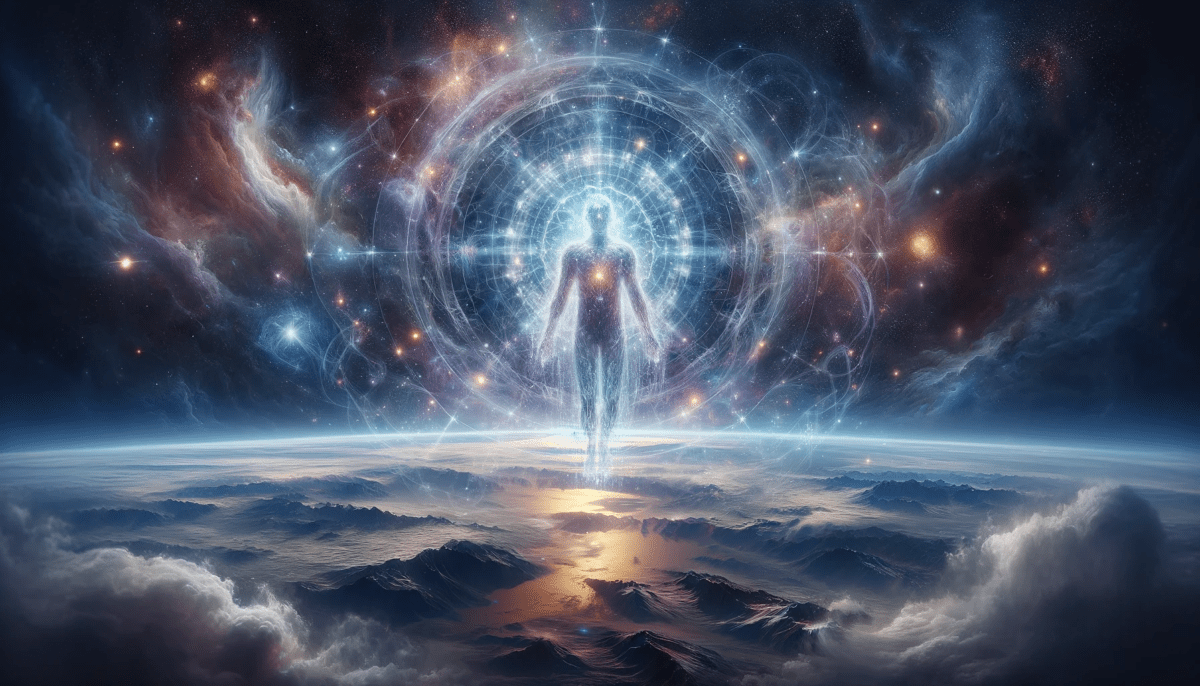
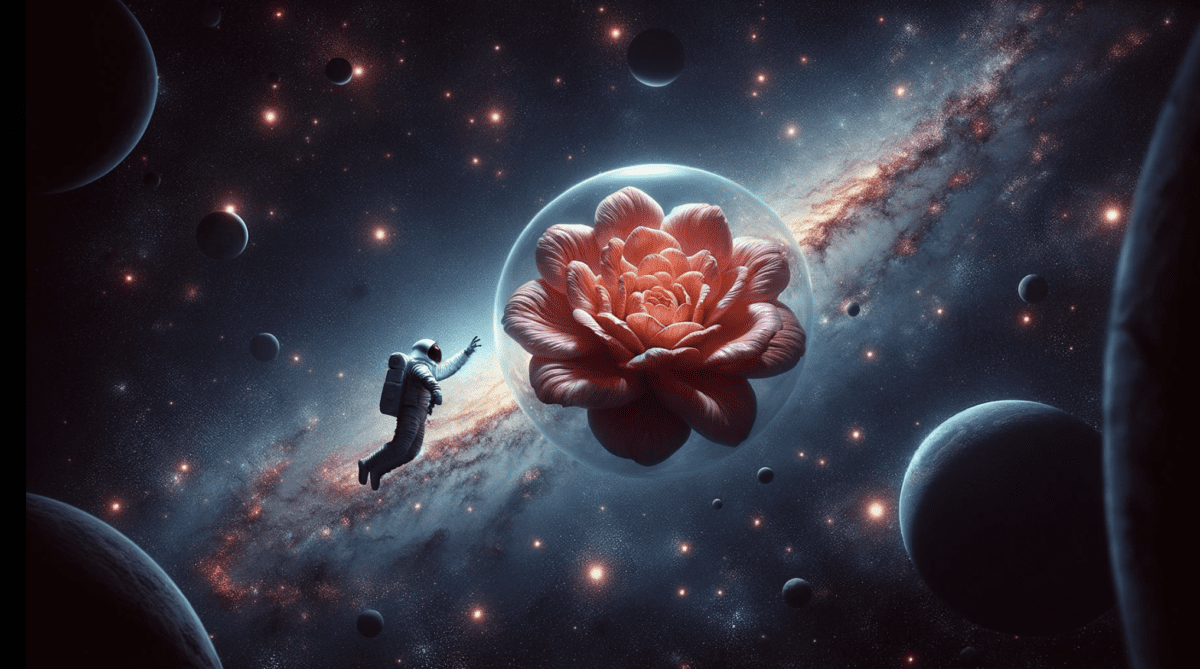
Leave a Reply